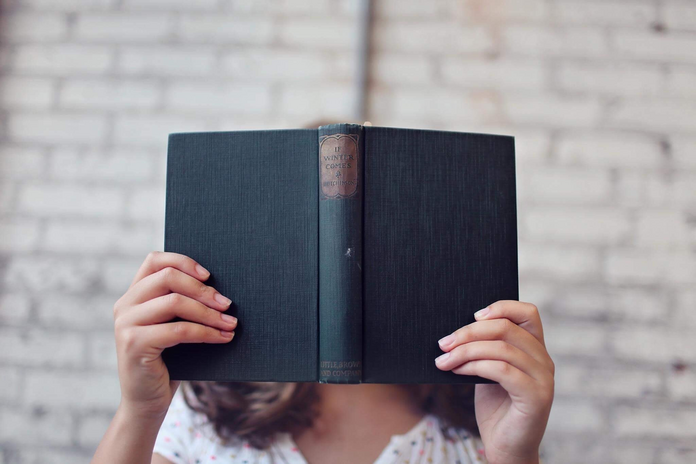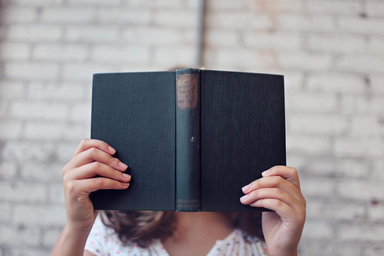Reading more is always time better spent than browsing through your phone simply because our screens stimulate our minds to an excessive extent with updates, news pieces, and ten to thirty second videos. And this argument doesn’t have to be made only to emphasize using your time wisely – it can be made to also bring us to think of our peace of mind. Needless to say, then, that browsing through different social media platforms tends to produce stress in me which has made me use these channels significantly less. However, only recently I’ve tried to also change my reading habits to also actually read more during the day. It’s been a slow, yet lovely process—especially since there’s enough reading in my studies—and I thought I could share some suggestions on how to add more reading into your days.
Read in the morning
There are two ways to begin your day by reading. You can pick up a book immediately after you’ve woken up, but of course when you’re also in the wakeful state. Or, you can read a bit in the space between after getting up and before going out or doing your other work or assignments. And no browsing too much on your phone, of course! Not only to read more but to also begin your day more restfully, it’s also enough to read a couple of pages or just a chapter.
Going out, take a book with you
An old advice yet a very good one. It’s natural to go through your phone while sitting in the train or waiting for something, but if you truly want to cut back on social media, for example, this is one lovely way to do it. I’ve particularly liked to take short story collections with me to read in the train or in cafés. You can’t help it if people are actively messaging you, of course, but if it’s really not a busy day, keep the phone in your bag.
While working and studying at home, fill your breaks by reading
Whether you take fifteen- or thirty-minute breaks, or give yourself a solid hour, why not try reading something different? I sometimes just pick up an essay collection and try reading through it by not giving it too much thought like I would give to a fictional story. Certainly, only a chapter or two can be enough if you’d like to rest your eyes, but this is a better way to rest your mind compared to your phone. Although, you can also check out interesting articles from the magazines that you know – essays about culture and entertainment, for example! This is contradictory to leaving your phone but go to the publications’ websites directly so you’re not stuck wondering if the next update on your feed after the article link is something interesting, left then scrolling for an hour again.
Got a lovely TBR list? Try starting to read more than one book
If there’s a way to getting through your to be read list just a bit quicker, it’s by picking up more than one book from it. This certainly gives you a good excuse to buy two or three new books to your bookshelf, but not only that. If you merely start reading more than one book, it might bring a nice variety to your reading and make you even more interested in what you’ve picked up, especially if the works notably differ from each other. A good piece of fiction can immerse and take you away while, say, an interesting essay collection keeps your feet on the ground.
Read in the evening to fill the last hour of your day
Another old advice but which can’t be emphasized enough for both reading more and being on your phone less. I can sympathize if you’re dead tired (at least you’re going to sleep immediately). But to have an interesting yet restful end to your day, turn off your Wi-Fi till morning and try reading for an hour or half an hour at least. If you feel like you can’t sleep, you can also switch between the books you’re reading (maybe one of them will make you tired).
These can also be ways to get you out of a reading slump: these ways of adding more reading have helped me to get out of mine since these have gradually made me read more and encouraged me to just pick up a book, along with an unfinished one, if it interests me. It’s about taking our time, but also being thoughtful of how much we let other channels of stimulation affect our minds and mental health.


